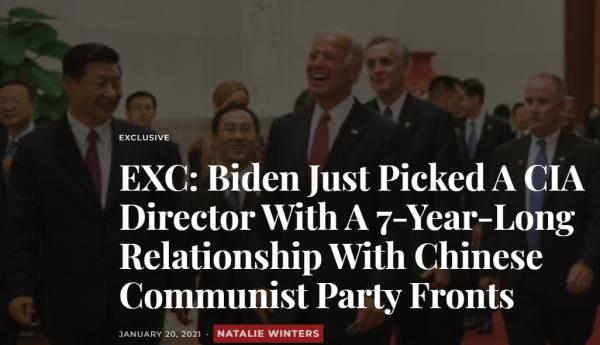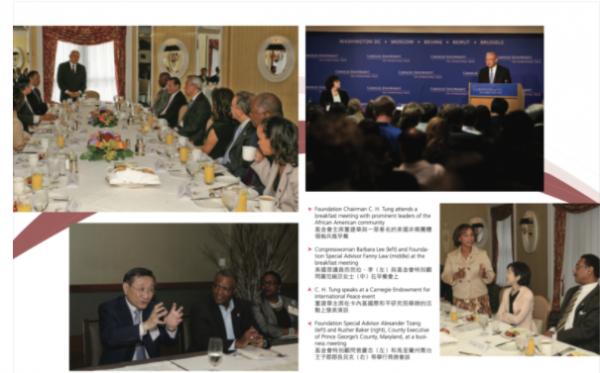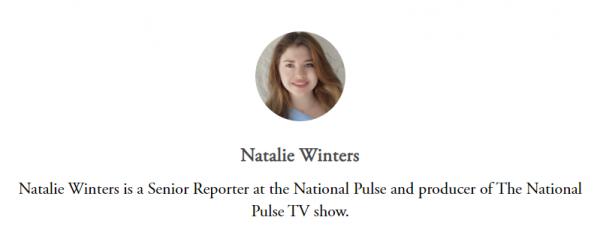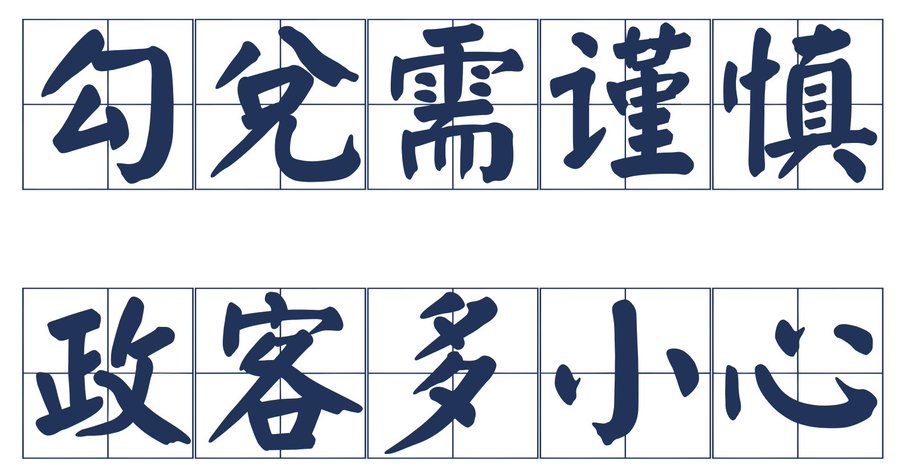| 拜登刚刚选中了与CCP有7年关系的CIA局长 |
| 送交者: Pascal 2021年01月21日23:06:10 于 [五 味 斋] 发送悄悄话 |
|
Bill Burns – Joe Biden’s pick to lead the Central Intelligence Agency – serves as the President of the Carnegie Endowment for International Peace which has over a decade-long relationship with the China-United States Exchange Foundation and other Chinese Communist Party-linked groups.比尔·伯恩斯(Bill Burns)——乔·拜登挑选的领导中央情报局的人选,任卡内基国际和平基金会主席,该基金会与中美交流基金会和其他与中共有联系的团体有超过十年的关系。 伯恩斯自2014年起担任该智库的主席,监督其与中美交流基金会(CUSEF)的合作,该基金会至少可以追溯到2009年。 CUSEF,是中共统一战线工作的一部分,该工作旨在 “合作并消除潜在的反对派来源”,并鼓励外国活动家 “采取支持北京偏爱的政策立场”, CUSEF曾赞助中共官员前往卡内基国际和平基金会演讲。
2009年,该智库接待了前上海市市长、中共政协副主席,并在CUSEF支付的旅行中进行了 “主题演讲”。 同样,两年后,根据CUSEF的宣传手册,CUSEF的创始人董建华,作为中共统一战线的 “最高级监督机构”,在卡内基国际和平基金会的活动中发表演讲。 更重要的是,《南华早报》将卡内基国际和平基金会描述为CUSEF的 “资金接受者”,并经常与他们一起开展寻求促进中美合作的项目。 2012年,CUSEF与该智库合作开展了 “美中安全认知项目”,该项目分析了 “政府、企业、学术界、军方和媒体五个不同类别的公众和精英对广泛的国家安全问题的看法,从美国和中共在全球和亚洲的权力性质,到对彼此的国家民族特色所持有的形象进行了探讨。” 同样是与中共战略文化促进会(CSCPA)合作——其领导人,前中共海军罗援军官主张中共军队要 “强大”——这份62页的报告向美中两国决策者发出了一系列 “建议”,包括 “强调合作而非竞争”,以及 “防止台湾问题破坏更广泛的合作”。 卡内基基金会的一众领导人——包括副总裁帕尔(Douglas Paal)——也为CUSEF的季刊《中美聚焦》撰稿。 自2014年以来,在柏恩的领导下,包括高级副研究员黄育康、驻校学者马特-费琛和驻校学者王涛在内的个人,与中共官员和解放军领导人一起为该杂志撰写了至少6篇文章。 卡内基基金会与中共还有一个联系:设在北京的卡内基——清华中心。 该中心设在清华大学,由七位在中共政府资助的大学工作的人担任指导学者。史志钦、孙学峰、赵可金、唐晓阳、陈琪、张利华、张传杰。 两位高级研究员与中共的关系更为明确,如 “曾在北京市人民政府外事办公室工作 ”的赵通和 “中共商务部咨询委员会委员 ”阎学通。 前国防情报局高级情报官员、国务院官员尼古拉斯·埃夫蒂米迪斯称:“中共领导人习近平的母校清华大学也与中共 国家科技和工业管理部门在讨论[他们]能为国家安全做些什么时,有着 ‘明显的联系’。” 该学校甚至针对美国政府发起了网络攻击,并与CNN和《纽约时报》等西方机构合作开展 “马克思主义新闻 ”项目。 该中心旨在促进美中合作,曾举办过中共官员和美国立法者如保罗·瑞安(Paul Ryan)、赵小兰(Elaine Chao)和约翰·克里(John Kerry.)等出席的会议。 原文作者:娜塔丽·温特斯(Natalie Winters / 《国家脉动》) 发布时间:2021年1月20日 原文链接:https://thenationalpulse.com/exclusive/biden-cia-director-ccp/ Burns has served as President of the think tank since 2014, overseeing its involvement with the China-United States Exchange Foundation (CUSEF) which dates back to at least 2009. CUSEF – part of the Chinese Communist Party’s United Front effort that seeks to “co-opt and neutralize sources of potential opposition” and encourage foreign actors to “adopt positions supportive of Beijing’s preferred policies” – has sponsored trips for Chinese Communist Party officials to speak at the Carnegie Endowment for International Peace. In 2009, the think tank hosted former Shanghai Mayor and Vice Chairman of the Chinese Communist Party’s Political Consultative Conference for a“keynote speech” on a trip paid for by CUSEF. Similarly, two year later, CUSEF’s founder Tung Chee-hwa, who chairs the “highest-ranking entity overseeing” China’s United Front, spoke at a a Carnegie Endowment for International Peace event according to CUSEF promotional brochures. What’s more, the South China Morning Post describes the Carnegie Endowment for International Peace as a recipient of “money from” CUSEF and often works alongside them on projects seeking to boost U.S.-China collaboration. In 2012, CUSEF partnered with the think tank on the “US-China Security Perceptions Project” which analyzed the “views of the public and elites in five distinct categories – government, business, academia, the military, and the media – regarding a wide range of national security issues, from the nature of American and Chinese power, both globally and in Asia, to the images held of one another’s national character.” Also in partnership with the China Strategic Culture Promotion Association (CSCPA) – whose leader former Chinese Navy Luo Yuan officer argues for a “strong” Chinese military – the 62-page report issues a host of “recommendations for U.S. and Chinese policymakers including to “emphasize cooperation over competition” and to “prevent the Taiwan issue from derailing broader cooperation.” A host of Carnegie Endowment leaders – including Vice President Douglas Paal – have also contributed to CUSEF’s quarterly journal, China-US Focus. Since 2014, individuals under Burn’s leadership, including Senior Associate Yukon Huang, Resident Scholar Matt Ferchen, and Resident Scholar Wang Tao, have contributed at least six articles to the magazine alongside Chinese Communist Party officials and People’s Liberation Army leaders. The Carnegie Endowment retains yet another link to the Chinese Communist Party: its Beijing-based Carnegie-Tsinghua Center. Hosted at Tsinghua University, the institute features seven individuals who work at the Chinese government-funded university as its guiding scholars: Shi Zhiqin, Sun Xuefeng, Zhao Kejin, Tang Xiaoyang, Chen Qi, Zhang Lihua, and Zhang Chuanjie. Two senior fellows have even more explicit ties to the Chinese Communist Party such as Tong Zhao who “has worked for the Office of Foreign Affairs of the People’s Government of Beijing Municipality” and Yan Xuetong, a “member of the Consultation Committee of China’s Ministry of Commerce.” Tsinghua University, Chinese Communist Party leader Xi Jinping’s alma mater, also has a “clear connection” to the Chinese”state administration for technology and industry in discussions on what [they] can do to help the national security,” according to former Senior Intelligence Officer in the Defense Intelligence Agency and State Department Official Nicholas Eftimiades. The school has even launched cyberattacks against the U.S. government, and partners with Western institutions like CNN and the New York Times for its “Marxist journalism” program. The center, which seeks to boost U.S.-China collaboration, has hosted conferences attended by Chinese Communist Party officials and American lawmakers such as Paul Ryan, Elaine Chao, and John Kerry.
|
|
|
|
|
 |
 |
| 实用资讯 | |
|
|
|
|
| 一周点击热帖 | 更多>> |
|
|
|
| 一周回复热帖 |
|
|
|
|
| 历史上的今天:回复热帖 |
| 2020: | 最简单的传染模型应该是这样的: 海外1 | |
| 2020: | 外长王毅主持对台工作会议,这个信号不 | |
| 2019: | 俺为何相信进化论? | |
| 2019: | 一个快速积累功德资粮的方法,不信的跳 | |
| 2018: | 转篇博文: | |
| 2018: | 马思聪:我为什么逃离中国(转载) | |
| 2017: | 看来花钱买游行不能让中共专美,民主党 | |
| 2017: | 隔壁那个华人与狗不能进的资本家,既反 | |
| 2016: | 中越战争真相:中国和苏联命运的关键转 | |
| 2016: | 靠!吃拿人连爱鬼也要靠翻墙偷渡,嘿嘿 | |








